Remembering John ‘Jack’ Boyer, MD, Founding Faculty Member
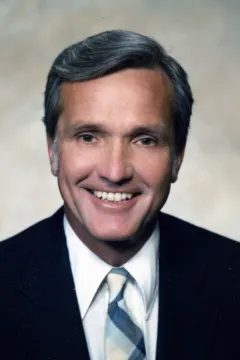
On February 15, 2023, the University of Arizona College of Medicine – Tucson lost a founding member of its faculty, noted geriatrician John Thomas “Jack” Boyer, MD. Dr. Boyer, 93, died peacefully at home following a slow decline over many years.
“Sliding into dementia was a surprise,” he wrote. “That I was bright enough to know it was both annoying and depressing.” Communicating about one’s own dementia, he said, “is a difficult phenomenon that produces many inconsistencies,” but “I don’t prefer privacy. I feel that it would be a contribution to society for geriatricians to talk about it more.”
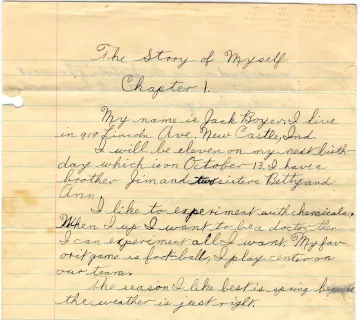
Jack was born on October 13, 1929, in Newcastle, Indiana, the fifth child of Walter Howard Boyer and Ruby Allen Boyer. Ruby and Howard had lost their first-born son Billy to polio before Jack’s birth, and from early childhood Jack declared his intention to become a physician and to cure disease. Young Jack earned money delivering newspapers, working on a washboard assembly line, and making nose cones for the U.S. military during World War II. Together with older brother Jim, he played football for Grandview High School in Ohio, and he was accepted to Denison University with a football scholarship. At Denison, Jack excelled at academics, served as president of his fraternity, and starred as running back for coach Woody Hayes. In 1951 he commenced medical training at Harvard Medical School.
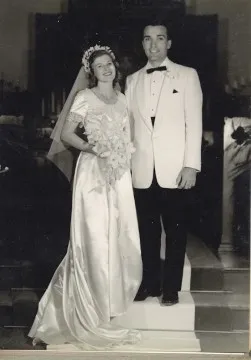
At Harvard, Jack met his bride-to-be, medical school classmate Georgiana “Georgie” Sykes — a graduate of the University of Arizona who had grown up in Tucson. Georgie and Jack graduated together in 1955 and moved to Cleveland, Ohio, where he completed his internship and residency in internal medicine. His studies were interrupted by a call to U.S. Army service in Korea. In 1958, Jack began fellowship training at the Royal Melbourne Hospital in Australia. While there, he acted in the role of submarine physician in “On the Beach,” a movie directed by Stanley Kramer. On his return to Cleveland, Jack joined the faculty of Case Western Reserve University as a hematologist. His children recall with delight Jack’s demonstrations in elementary school classrooms, where he used blood antigens and an overhead projector to demonstrate how ABO blood types could be determined.
In 1969, the growing Boyer family moved to Tucson, where Jack joined the faculty of the University of Arizona’s new College of Medicine. During his years of subsequent academic practice, Jack launched three divisions — geriatrics, hematology and rheumatology — in the Department of Medicine, co-founded the Center on Aging, and was a founding member of the Arthritis Center. After formal retirement in 1993, Jack continued to volunteer in geriatrics, first seeing patients and later as a patient himself.
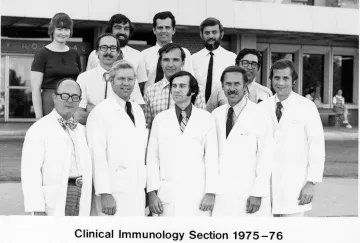
“I became the example of an older patient more than of a geriatrician,” he recalled. “It was a good switch. I could argue with the fellows and residents with the authority of a patient and a physician. It was fun!”
“Dad had a gift for telling hard truths,” said son Quentin Boyer. “He did it simply and directly, but with such clear, sincere empathy that it lessened the burden of hearing that hard truth on the listener. It’s part of what made him such a great physician, and even better father.”
“Most of what I know about bedside manner I learned from my father,” said daughter Leslie, now professor emerita at the College of Medicine – Tucson. “His way of communicating with patients was almost identical to the way he talked with his children, his students and his colleagues. He respected everyone’s dignity. He could talk a fallen older adult through a self-assessment over the telephone, or he could diagnose pneumonia by placing his ear on the chest of an ailing hotel worker in Africa, and in both situations the patient left the encounter empowered to take the next steps in healing himself.”

“Professionally we have all been blessed with his teaching, mentorship and insights,” said Rosemary Browne, MD, medical director of the Southern Arizona VA’s Home Based Primary Care Program. “Personally we have all been blessed with his humor, friendship and zest for life.”
“Dr. Boyer was a brilliant, charming and curious physician, the model of a lifelong learner,” said Mindy Fain, MD, professor of medicine and co-director of the Arizona Center on Aging. “As a mentor, you couldn’t ask for better: He was selfless and devoted, always excited to celebrate the successes of those privileged enough to be called his mentees.”
Jack Boyer played tennis and hiked through most of his life, and he continued bicycling until his late 80s. He enjoyed photography and traveling with Georgie throughout the Americas, Europe, Asia, Africa and the South Pacific. He was surrounded by family and friends until the very end, appreciative of help with memories and involved in every decision through hospice care.
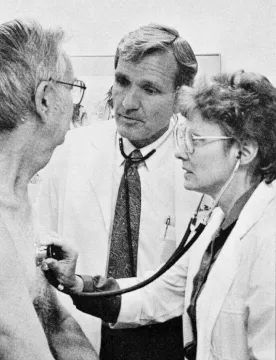
Jack is survived by his wife Georgiana Boyer, daughters Leslie Boyer, Diane Boyer and Connie Choza, son Quentin Boyer, and grandchildren Maxwell Hassen, Ailem Hassen, Juliana Choza and Carmen Choza. He was preceded in death by his son Jim Boyer in 1999. A published account of his 2021 acceptance speech for the Lifetime Achievement Award from the Arizona Geriatrics Society is available online. In lieu of flowers, the family asks that donations be directed to the Jim Boyer Memorial Scholarship or to the Arizona Center on Aging. A memorial service is expected in late March.

